
Winter Wonderland at Cumberland
The Bushveld.
The very word conjures up images of faraway places, majestic animals, trees, mountains and endless vistas. Places nearly a lifetime away, the playground of the well-heeled, of the bronzed game rangers and of mystical tribespeople. The word stirs within each of us a longing to be somewhere else, somewhere different, where days are filled with fantasy-like contact with nature, and the nights brim with moonlight and drip stars all about.
It's the world of Jock of the Bushveld, of David Livingstone, HM Stanley and other legendary explorers, of big game hunters, of botanists and collectors of insects, of missionaries and adventurers, prospectors and pioneers. The world of conquest, of conflict, of blood and death. It's the essential Africa. A distant place, for most of us only to be dreamed of and longed for.
We cheat ourselves that way. We love the long vision that looks past and over our own doorstep. We dispair of the vast tracts of exotic plantations that cover the hills and valleys near to home. We avert our gaze from the sugar cane lands, the mielie fields and dairy pastures, for these can never compete with the real Africa. We drive through our home territory longing for other places and things, seldom stopping to see the beauty and splendour that surround us.
Yes, the exotic forests and the farmlands may not conform to our perception of wild Africa, but they are what we have, and they are also lovely. They are part of the world that we've fashioned, that sustains us, and has become part of the fabric of our lives. The Midlands of Kwazulu-Natal is essentially agricultural, and its character has been irrevocably changed from what the inhabitants of two hundred years ago knew.
But.
Here and there, there are gems. Isolated patches of the past, engaged in a life-and-death struggle against the future that already surrounds them. Landowners battle valiantly against land claims, poachers, alien vegetation, drought, lack of funds and the antics of visitors.
Over the years I've searched for these islands of history, and found many, in varying degrees of preservation or decay. Some are sad, some are less so, nearly all suffering the ravages of pitiless time. Here and there, though, I've stumbled across places that thrive in spite of the pressures of the modern world. One of these is Cumberland Nature Reserve, just twenty minutes' drive from the capital city of Kwazulu-Natal.
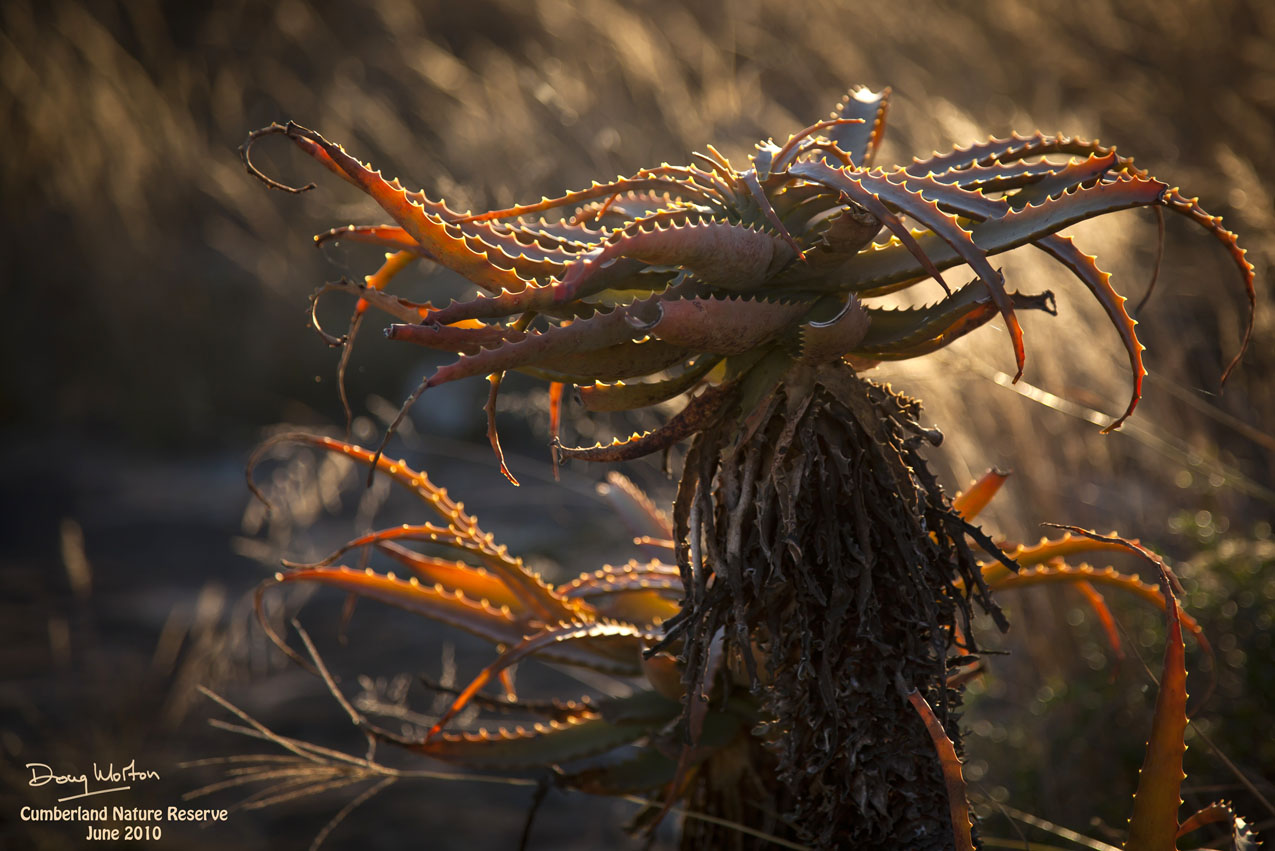
Cumberland is the home and life project of John and Stella Behn. It's a 300 Ha property, not far from Table Mountain, and enjoys the Umgeni River as one of its boundaries, downstream from Albert Falls Dam. It lies at the head of what becomes the Vallley of a Thousand Hills, and includes some truly dramatic scenery, ranging from river frontage to savannah, thornbush and craggy hills.
There's an extensive picnic site and a wonderful campsite along the banks of a stream that plunges over a waterfall into a gorge that flows into the Ungeni River. The property is heavily used by school and team-building groups who use the old farmhouse as accommodation. Day visitors have access to the whole reserve with the exception of the rustic huts and the campsite, if occupied, and there are strict bans on dogs and motorbikes. John and Stella themselves patrol the reserve to control behaviour of visitors, and there are seldom distrubances.
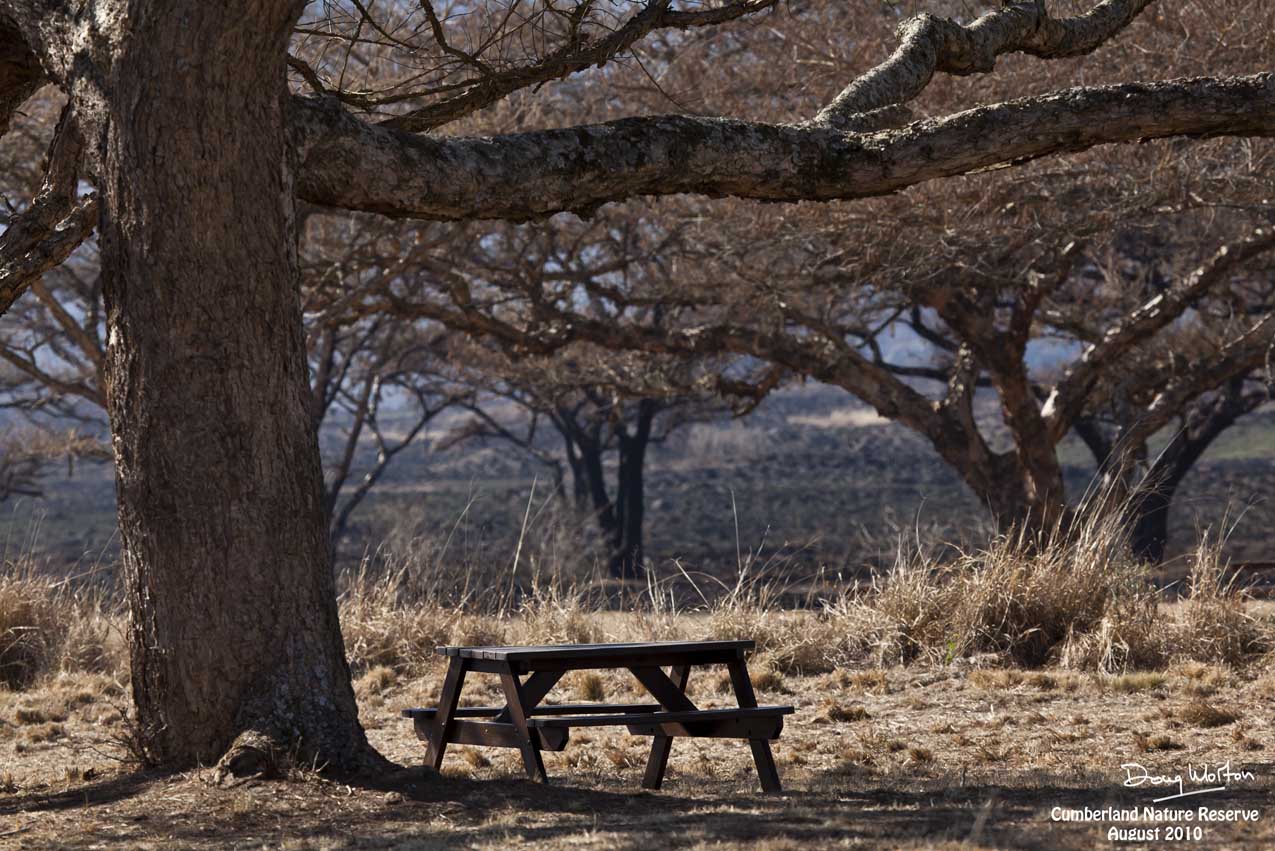
As beautiful as Cumberland is in the warmer part of the year, with its wonderful birdlife and variety of insects and reptiles, the greenness and the flowers, it's in the winter months that the real peace is to be found.
This is the time of the planned burning, of construction and maintenance, of roadworks and repairs and extensions to infrastructure. It's a time of fewer visitors, and deeper quiet. The abundant Acacia Sieberiana, or Paperbark Thorns, stand guard over the antelope, like sentinels on the plains. It's a landscape of yellow, grey and even black, relieved by the slashes of vibrant colour provided by aloes, and can look close to drab.
But just look. It's merely a time of rest, as we sleep in the dark hours, so Cumberland sleeps through the winter, gathering its reserves for the new season.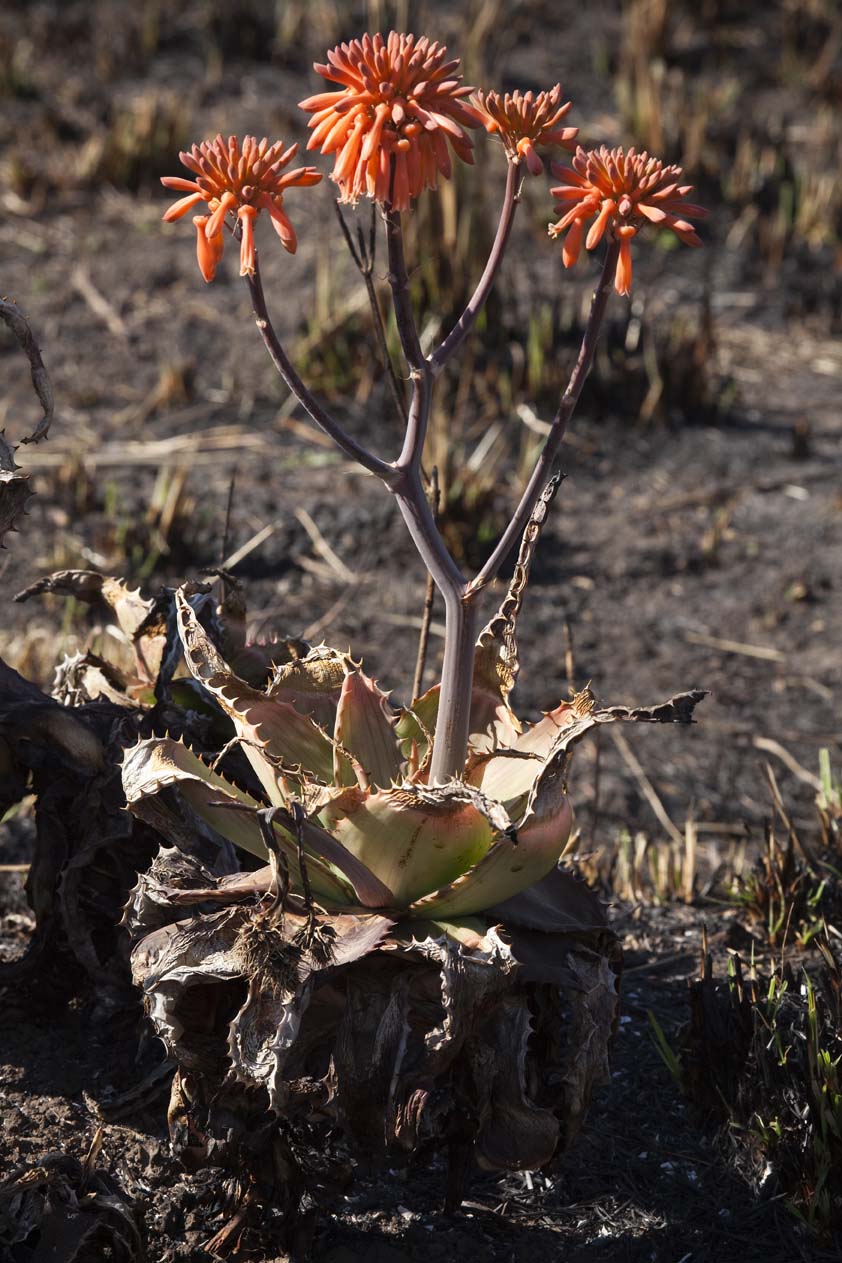
The planned fires have done their work, and the aloes have stood firm. The landscape looks desolate, the trees bare and forlorn, the sky a pale, washed-out blue grey.
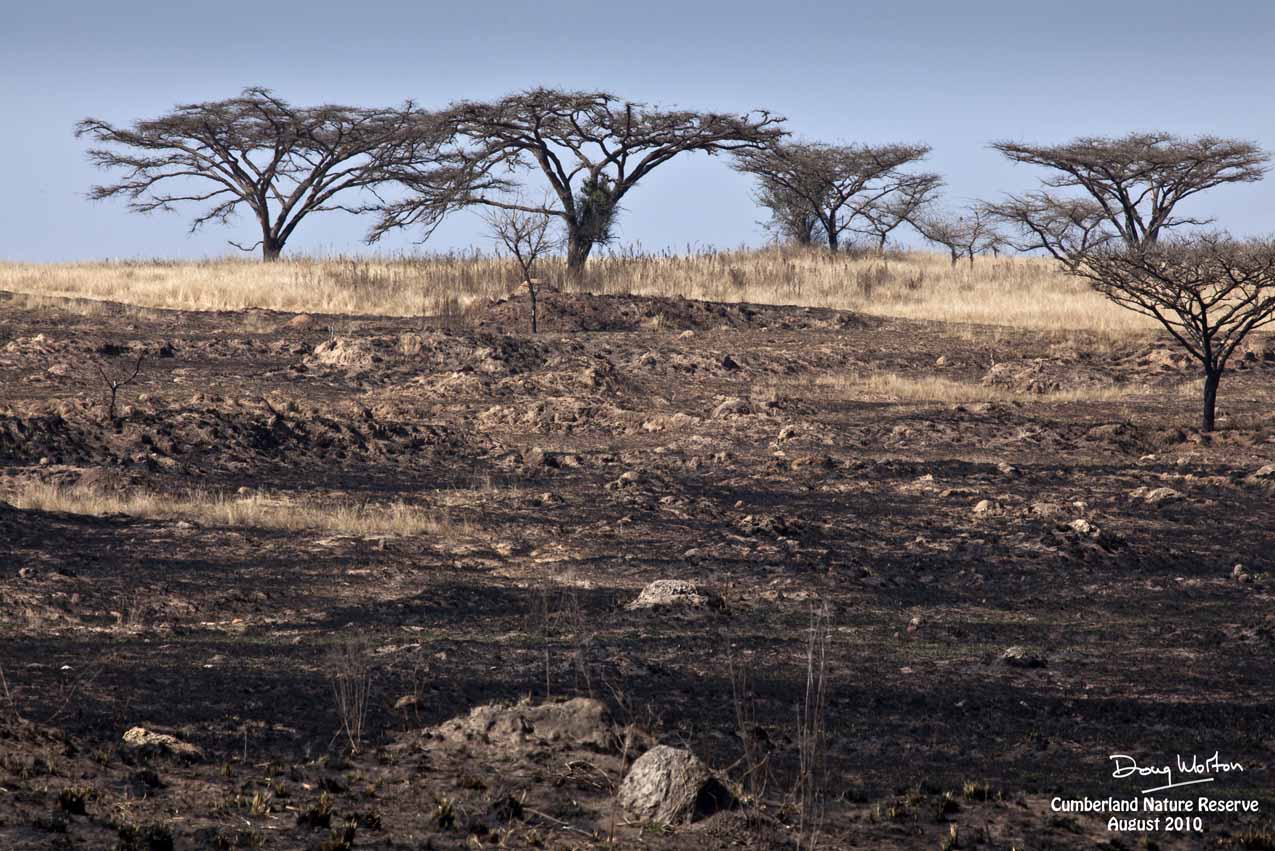
The trails that just weeks before were mostly obscured by lush grass are now exposed as scars on the ground, and the beautifully weathered sandstone rock formations are open to view.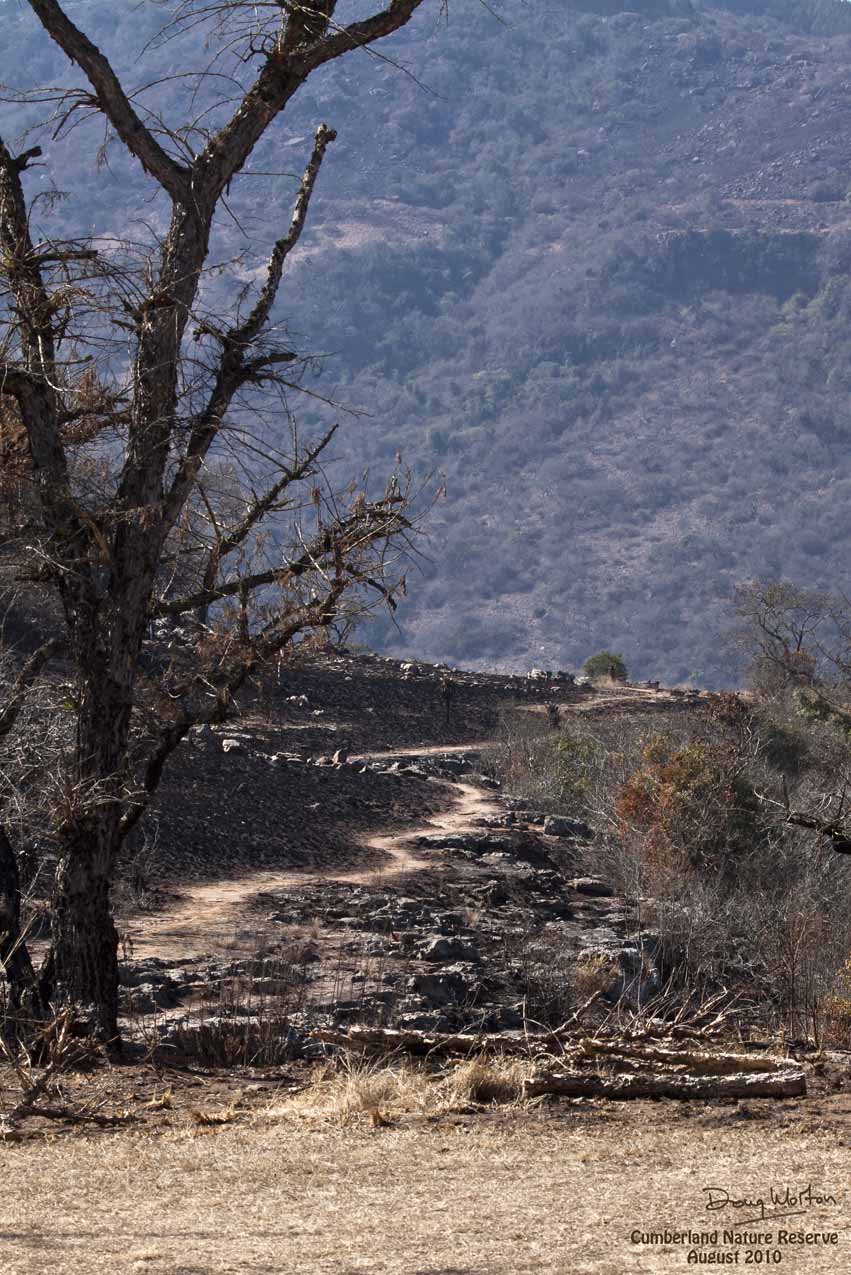
The rocks themselves are works of art, and with their patterns of different lichens are worth more than one glance.
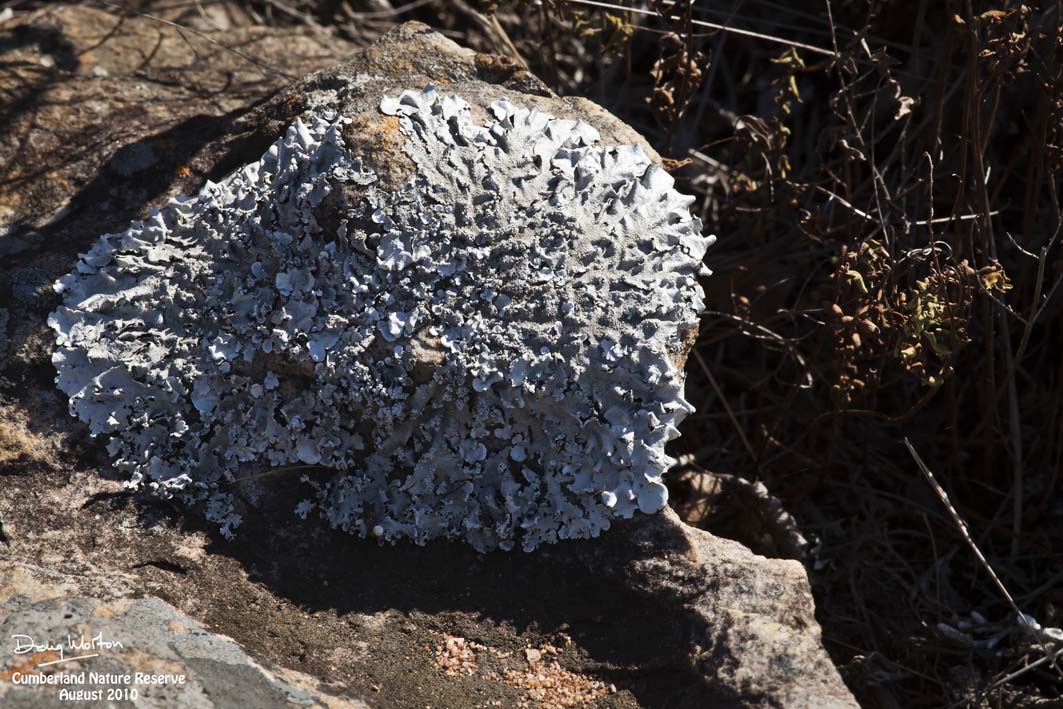
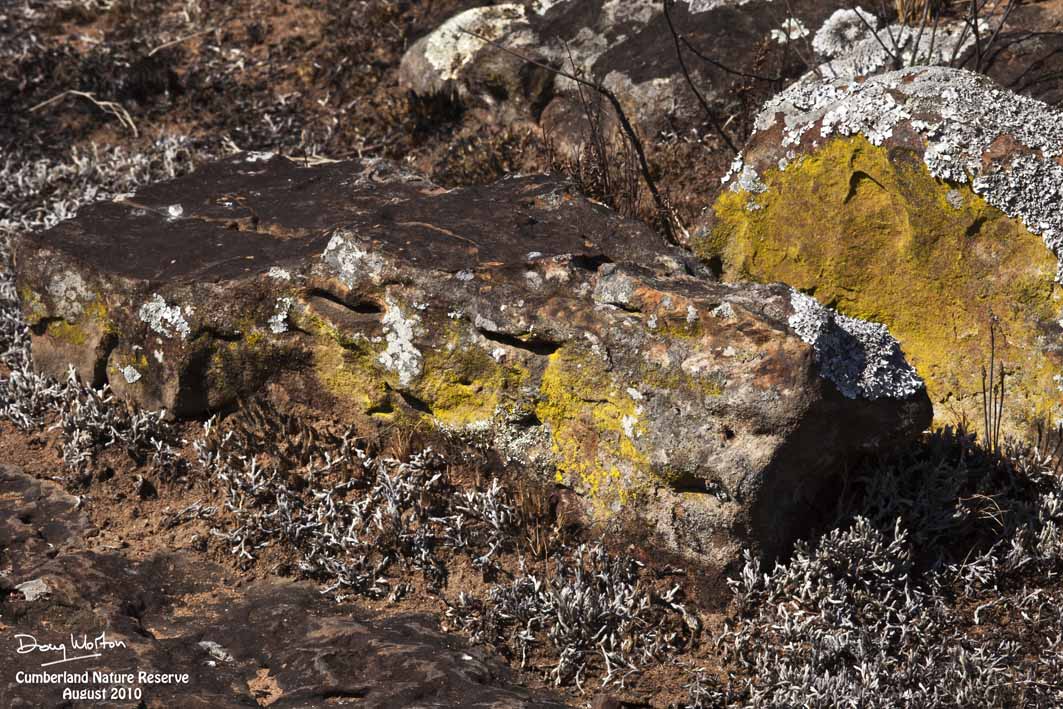
While everywhere Aloe ferox, or Bitter Aloe, punctuates the gloom with splashes of scarlet, attended by flocks of birds looking for the goodness of nectar and rummaging among the leaves for the insects that are such an abundant and vital part of the food chain. The winter months accentuate the quest for food, both by localising the source and by the heightened visibility of the plants that are the main providers.
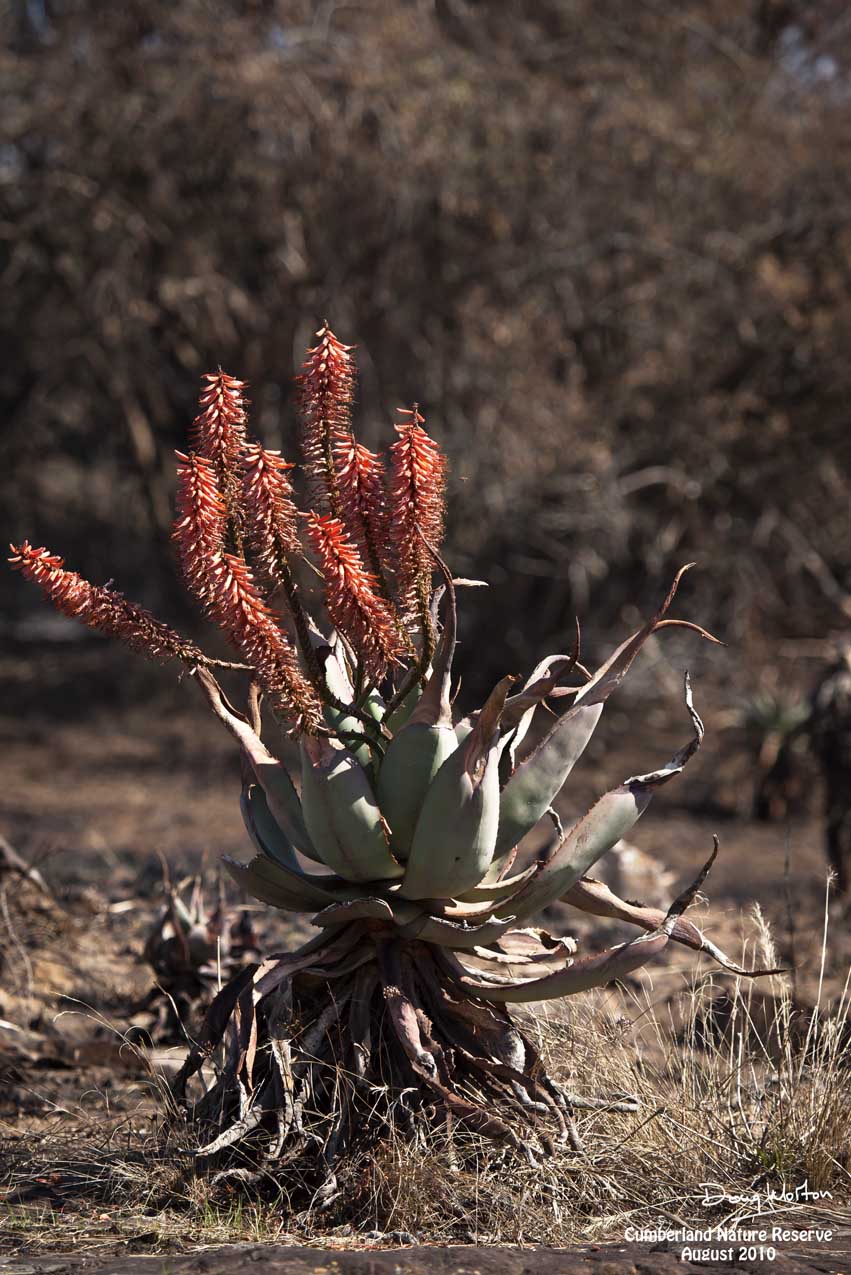
There seems to be little possibility of new life in this harsh landscape.....
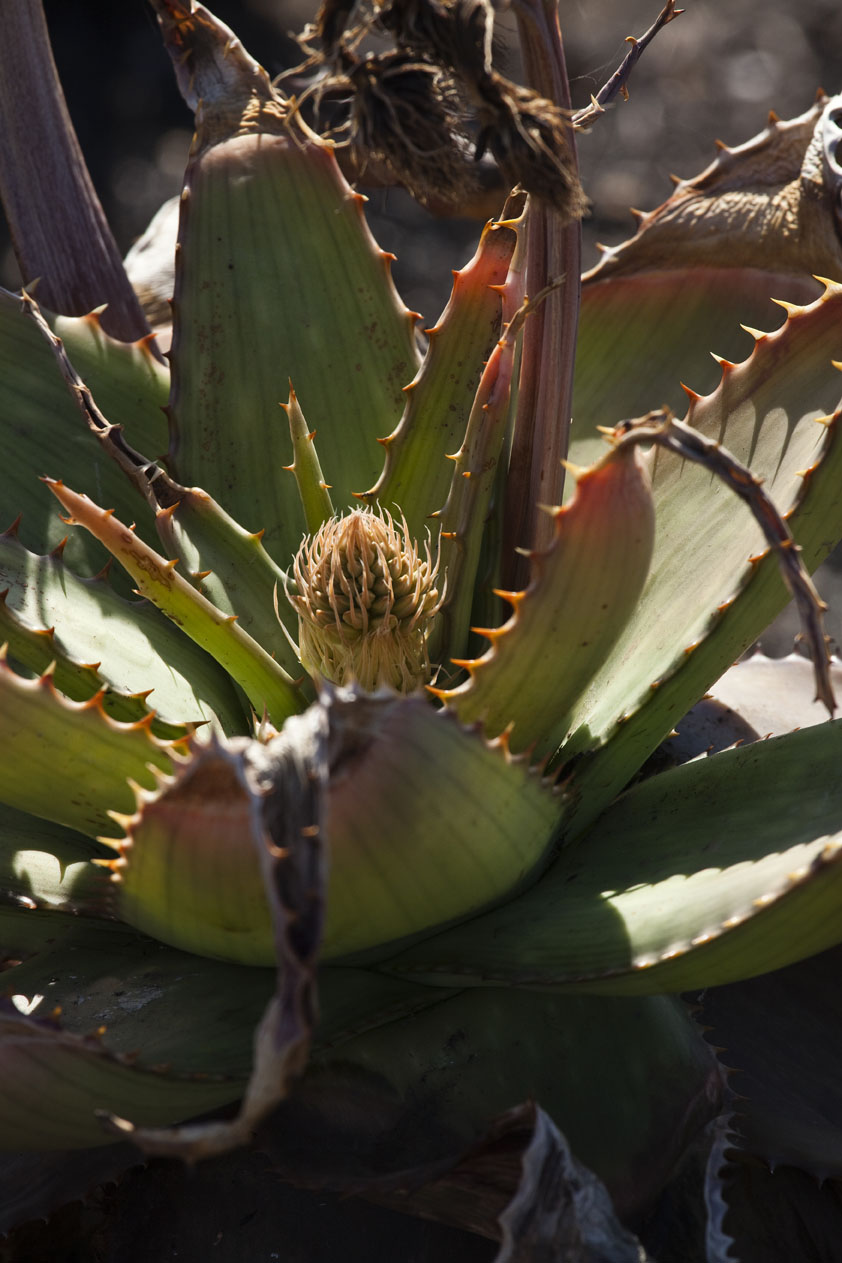
yet the signs are there even in the bleakest parts.
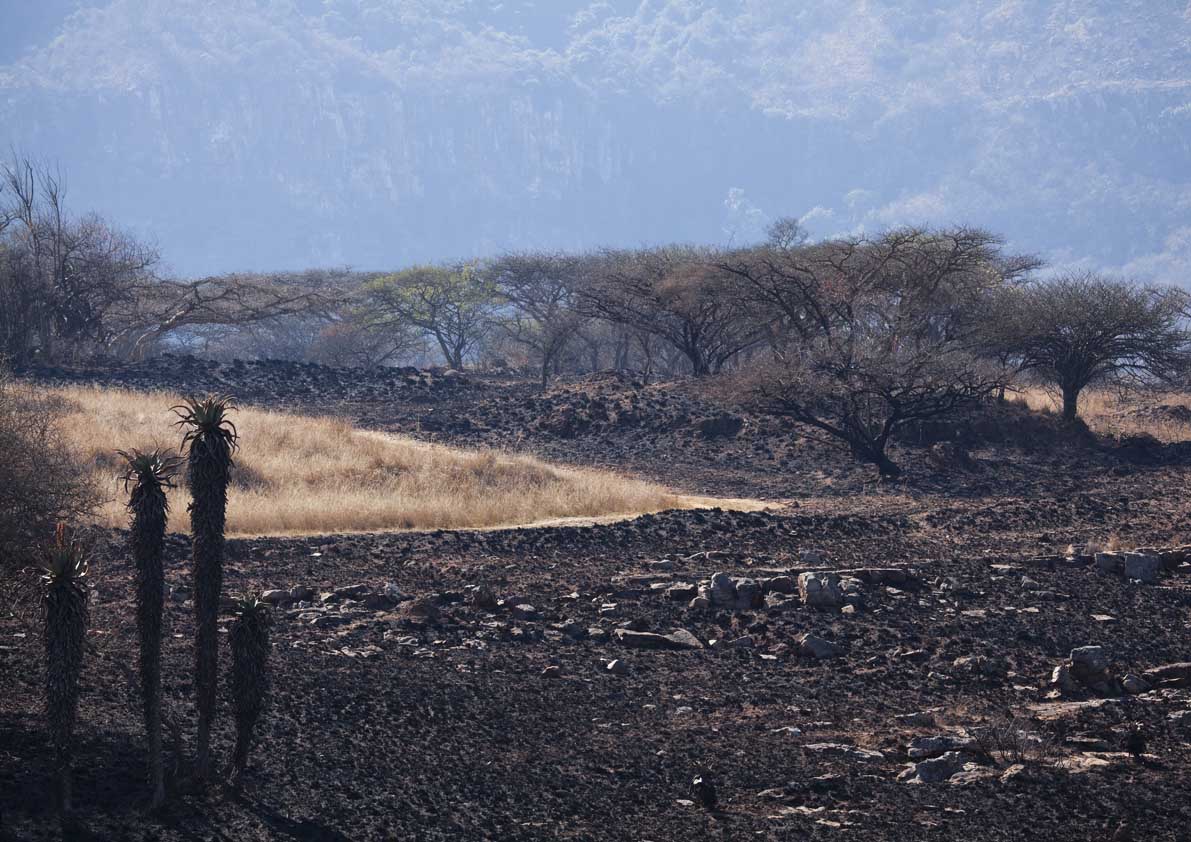

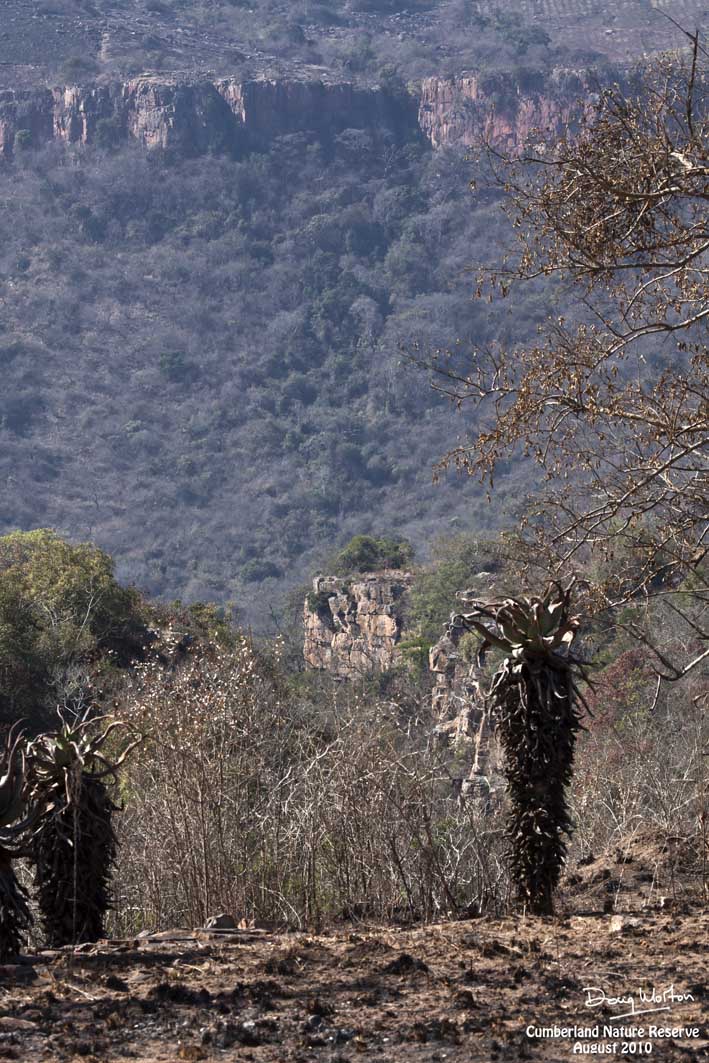
One day soon the season of the aloes will be over, and the countryside will slide into the deepest state of drabness, relieved nowhere except by the visitors and their colourful garb and vehicles. Strangely, though, the birds will continue to feed, finding morsels enough to sustain themselves till the new growth. The stems and trunks of the Paperbark Thorns harbour all the necessary treats.
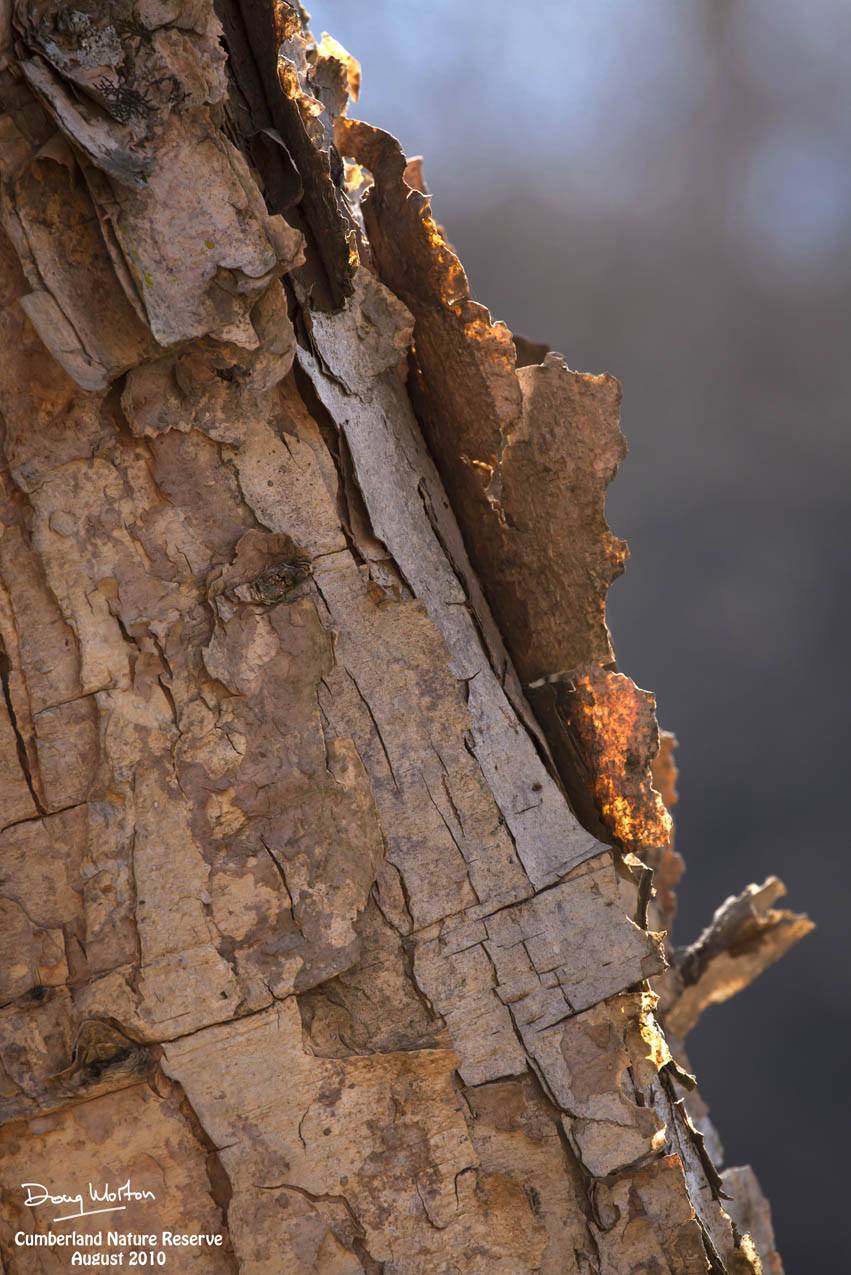
It's only August. There hasn't yet been even a suggestion of rain. But here and there, life is stirring. The new season is starting, and the zebras and antelope are on the lookout. This is the very reason for the burning program, and is a profound sign of the reliability of the natural world.
With months to go before the arrival of warmer and wetter weather, Cumberland is growing again, and the birds, insects, reptiles and mammals are taking note, and starting to think about the the new season that will bring about all the annual activities that are part and parcel of continuity.
For our part, as mere visitors, even intruders, we need to look and observe as if these things would never happen again. It's a timeless miracle and a tragedy. A miracle of the cycle of life, and a tragedy of our neglect and blindness.
Just look.
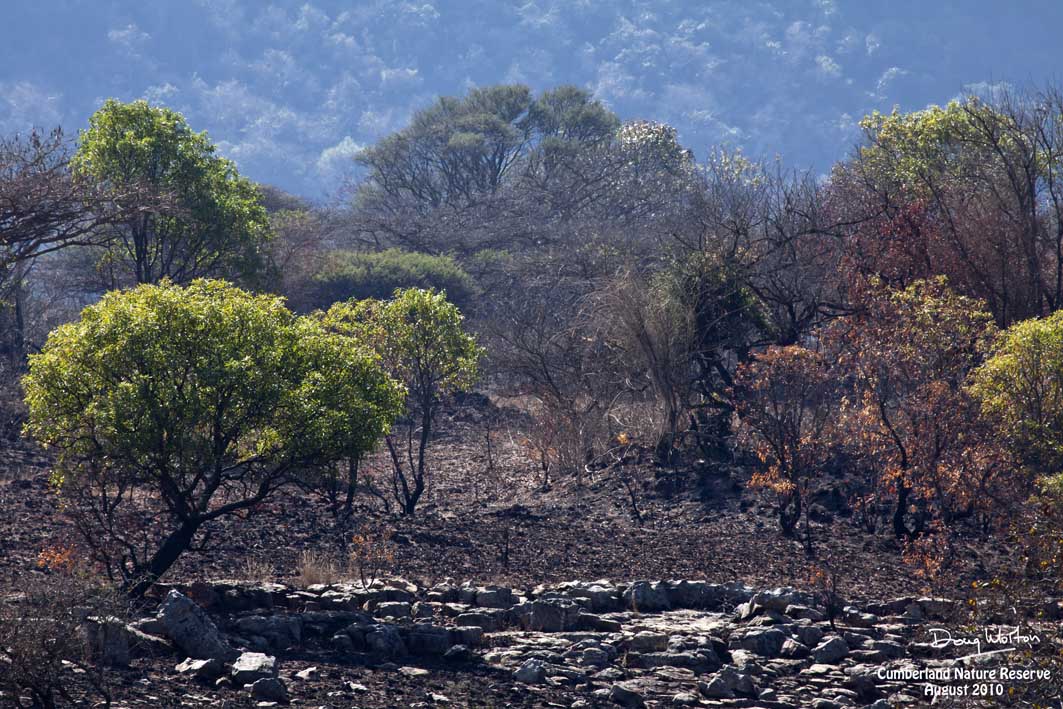
In the midst of the destruction by fire, the trees have done more than just survive,
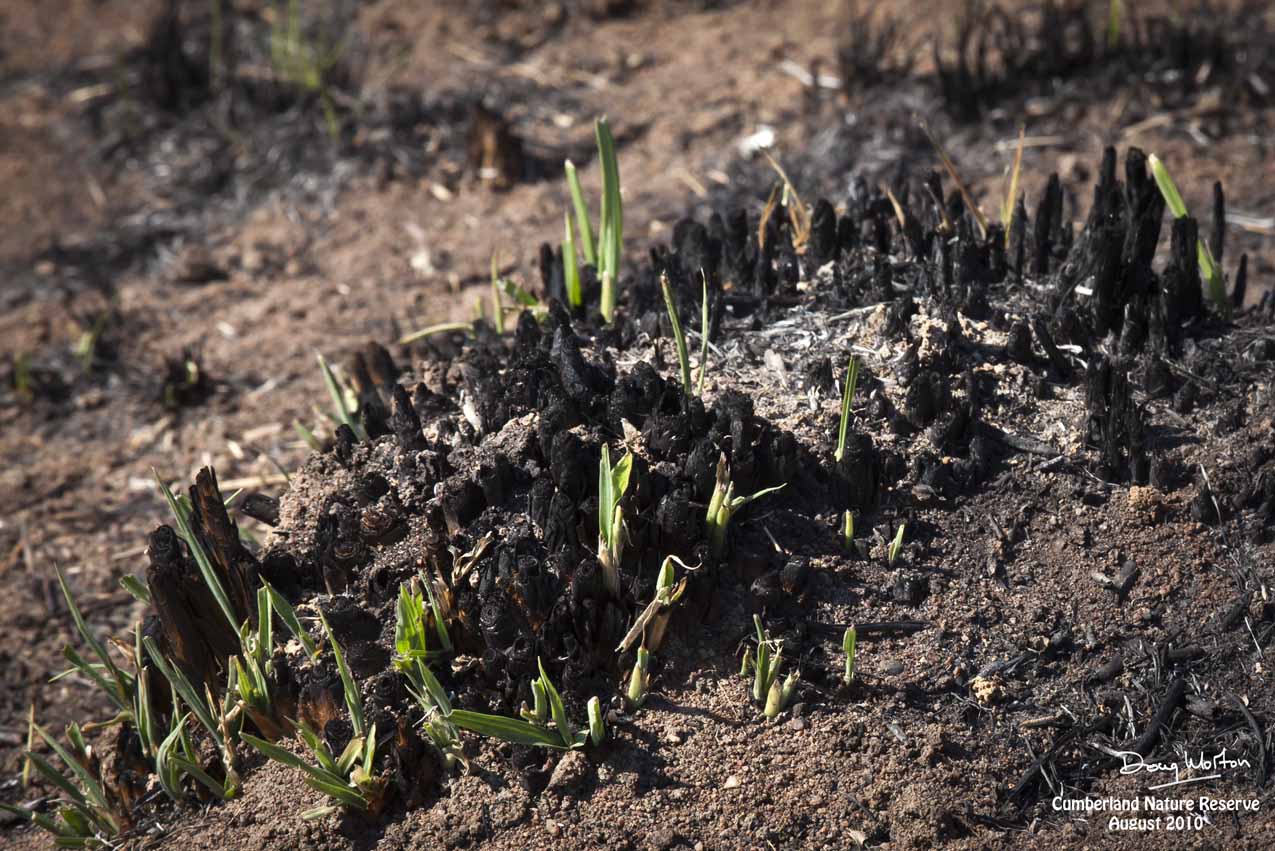
and the grass itself is being renewed.
Cumberland is a jewel of nature set in an ocean of artificial habitats. It is host to countless refugees from organised agriculture, and to those of us who value solitude and the simple beauty of nature.
We all owe John and Stella Behn, and Gary Behn, and their team, an enormous vote of thanks for their vision and hard work in the face of all types of hardship and adversity.
Cumberland is worth a visit.
Comments
Cumberland - Looks great - Thanks for sharing this with us and informing us of this little bushveld "oasis" so close to PMBurg. People like the Behn's need to be commended for the work they do to enable Joe Public to appreciate thebush. Maybe one day we will get to visit this spot
Thanks for the reminder to look at ALL times
Very nice post. I recently found your weblog and wanted to say that I actually have really enjoyed surfing around your website posts. After all I will be subscribing to the feed and so i i do hope you write again soon!
Superb, what a webpage it is! This web site gives valuable data to us, keep it up.
Hi there, You have done a fantastic job. I'll certainly digg it and personally suggest to my friends. I am sure they will be benefited from this web site.
Fantastic post however I was wondering if you could write a litte more on this subject? I'd be very thankful if you could elaborate a little bit further. Many thanks!
Awesome post.
I've been browsing online more than three hours today, yet I never found any interesting article like yours. It is pretty worth enough for me. In my view, if all website owners and bloggers made good content as you did, the net will be a lot more useful than ever before.
excellent post, very informative. I ponder why the other experts of this sector don't notice this. You should continue your writing. I'm confident, you have a huge readers' base already!